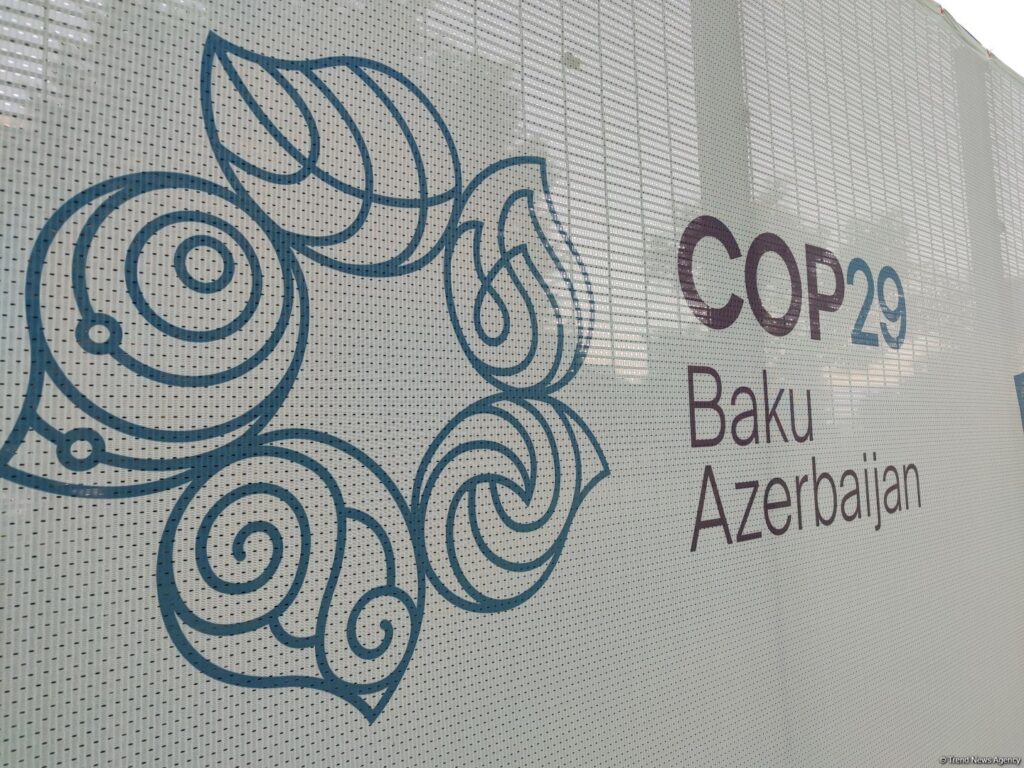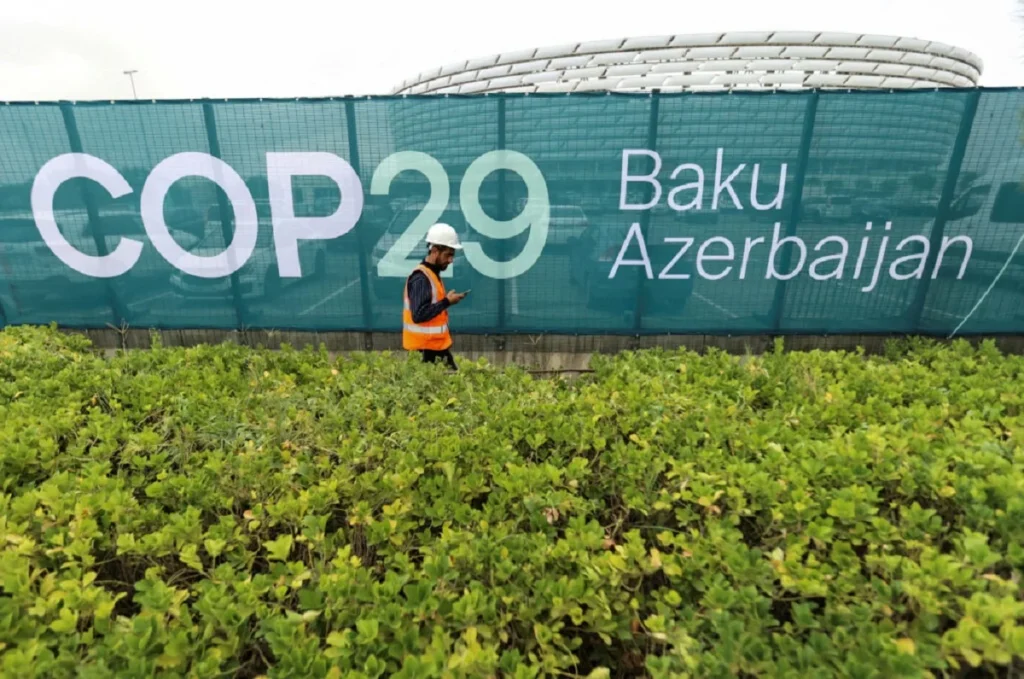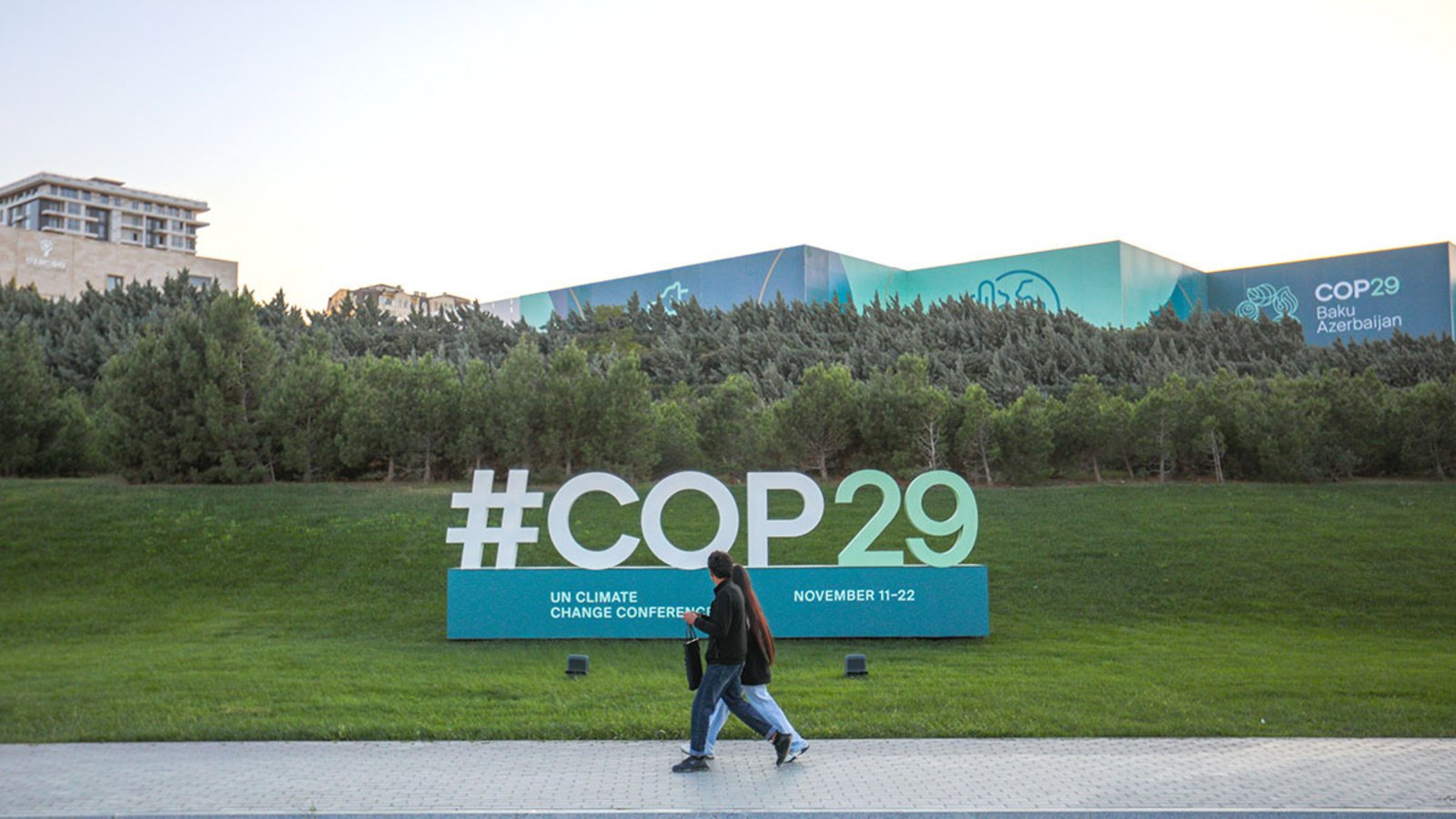Food & Climate
The COP29 in Baku ended today, with a declaration that its Presidency breaks through longstanding multilateral negotiations stalemate about Article 6. While agriculture and food production had a large share in the discussions during two weeks.
Article 6 will provide for high-quality and transparent carbon markets through which countries and companies can work together to meet their climate goals. Additionally, Article 6 can save as much as $250 billion per year in implementation of national climate plans, according to a statement seen by “Food & Climate” platform.
On Food Systems and Agriculture: despite their link to 30% of emissions and high vulnerability to climate impacts, the draft barely addresses them. Advocates are pushing for stronger language to scale up public finance for sustainable, resilient food systems.
On Indigenous Peoples: their rights and traditional knowledge are recognized, along with the need for increased finance. However, language on direct access to finance for Indigenous Peoples is weaker than in earlier drafts, according to “Earth.org”.
Baku Forest Declaration
The Global Forest Coalition (GFC) and members and allies from Central Asia and the Caucasus have issued the “Baku Forest Declaration,” urging a paradigm shift in climate negotiations to prioritize forest protection, Indigenous rights, and climate justice.
The declaration calls on the COP29’s presidency and the Parties to the Paris Agreement to address the devastating impacts of forest fires and deforestation, recognise the critical role of natural forests, and move beyond market-driven solutions to achieve sustainable climate action.
The UK unveiled £239 million (US$300 million) in new funding to help forest-rich nations tackle climate change. The money comprises £188m to SCALE programme for high-integrity forest carbon markets, £48m blended finance to unlock private investment in tropical forest enterprises and £3m for UNFCCC to help countries protect forests and support local communities.

Food Systems Transformation
The Alliance of Champions for Food Systems Transformation (ACF) reconvened in Baku on Tuesday (Food, Water and Agriculture Day at COP29), one year after its launch at COP28, to highlight progress since Dubai and to unite in urging governments and financial institutions at COP29 to prioritise climate finance for food systems. The snapshots, which showcase progress from across the ACF member countries since launch, include:
In Sierra Leone, the implementation of the national flagship ‘Feed Salone’ strategy is sustainably driving local food production by making agriculture more competitive for investment, decreasing food imports and supporting smallholder farmers, especially women and youth.
In Brazil, a National Program for Productive Forests (Programa Nacional de Florestas Produtivas) to promote sustainable agroforestry practices, enhance food production, generate employment, and restore degraded areas. The program’s initial phase targets the state of Pará and supports Brazil’s wider commitments to restore 12 million hectares by 2030 and create up to 2.5 million jobs.
In Cambodia, the deployment of 1,600 agriculture officers in agricultural communes across the country, developing modern agricultural cooperatives to improve access to markets, capital and water, whilst also increasing the economic efficiency and sustainability of smallholders;
In Norway, an annual policy dialogue with farming unions to negotiate policy measures that are tailored to farmers’ needs, delivering a ‘bottom up’ participatory approach that is designed to deliver against the country’s national and international commitments;
In Rwanda, a commitment by 2030 to halve per capita food waste at the retail and consumer levels and to reduce food losses in farm production and along supply chains, including post-harvest losses.78 NGOs, including Save Soil, 4per1000, and SEKEM, have endorsed a policy recommendation document, to be presented to the UNFCCC at COP29, calling on the Convention to facilitate access to climate finance for farmers to restore soils. Key policy recommendations include:
Making climate finance accessible to farmers for adopting regenerative agroecological practices; Increasing climate finance allocation to farmers for creating carbon sinks in farmland ; veloping supportive policies and infrastructure for adopting sustainable land practices; Mobilising private investment into soil regeneration;
Integrating soil restoration into climate finance strategies.
A new report – “Money Well Spent?” – reveals family farmers farmers are shut out of decision-making and have no direct access to finance, highlighting how two biggest global climate funds are failing to get finance to grassroots farmers organisations where it can have the most impact.

A new hub spearheaded by the International Livestock Research Institute will provide a one-stop-shop for solutions to help the livestock sector in developing countries meet rising demand for animal-source foods while keeping emissions to a minimum.
The Livestock and Climate Solutions Hub will bring together new and existing approaches to support the transition to climate-smart, sustainable livestock production in low- and middle-income countries. The solutions may be technical, such as advances in animal health, genetics and nutrition, or practical, such as improved management of livestock systems based on circular economy principles.

